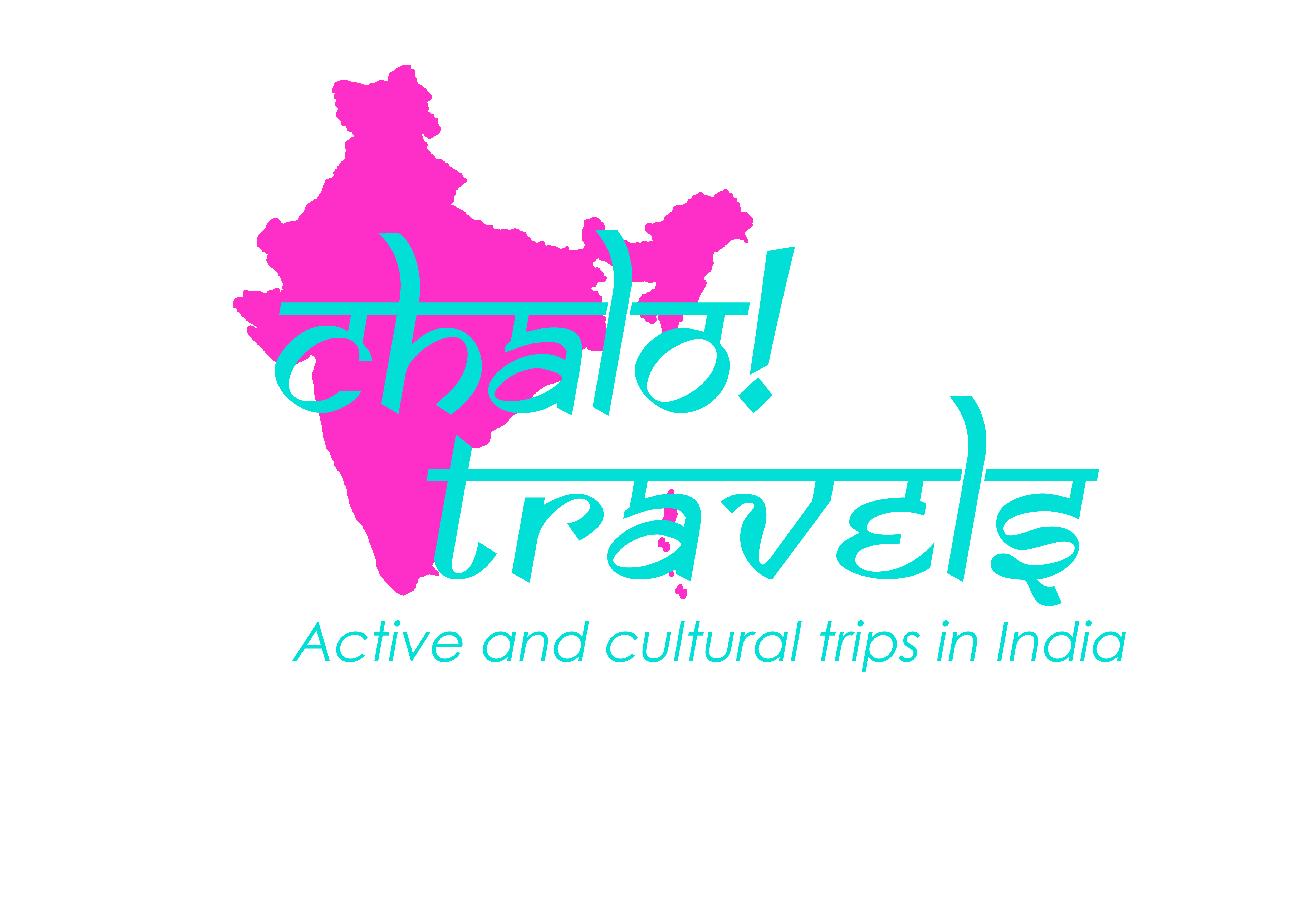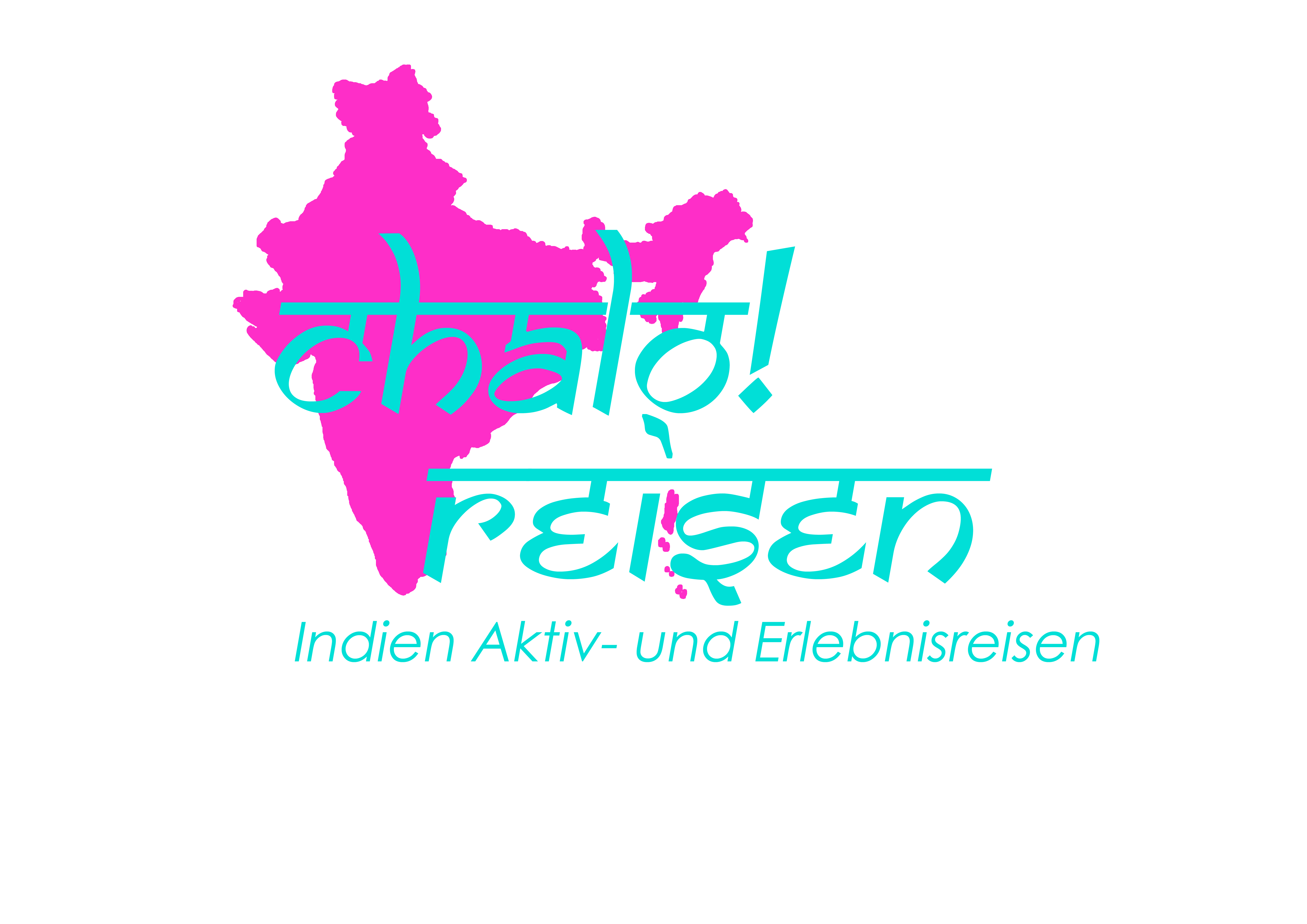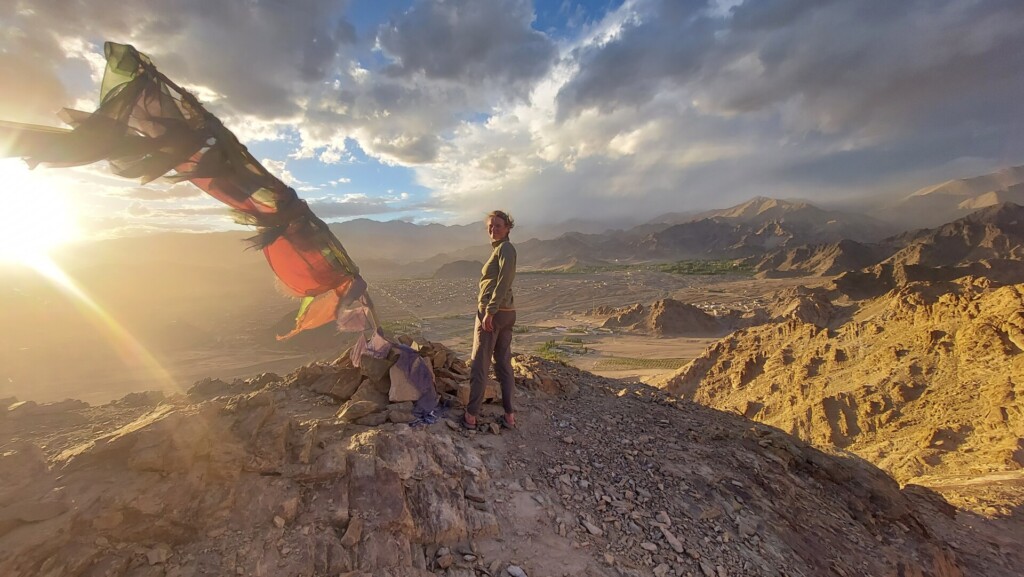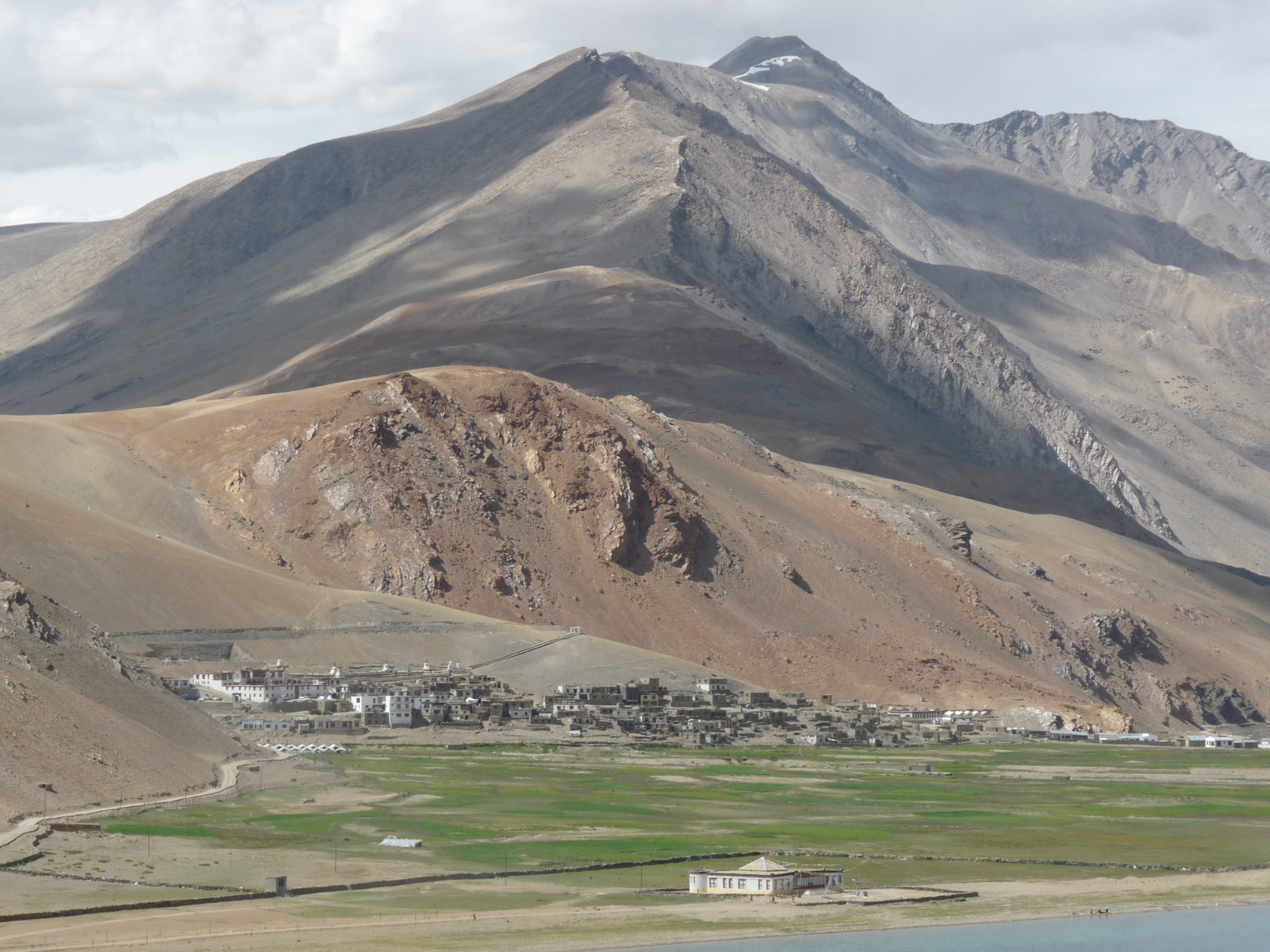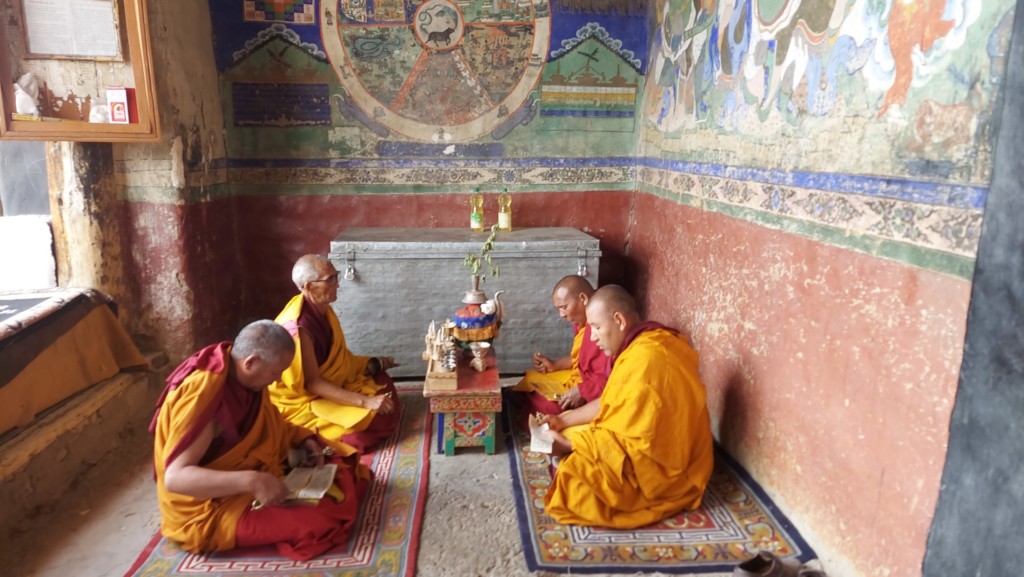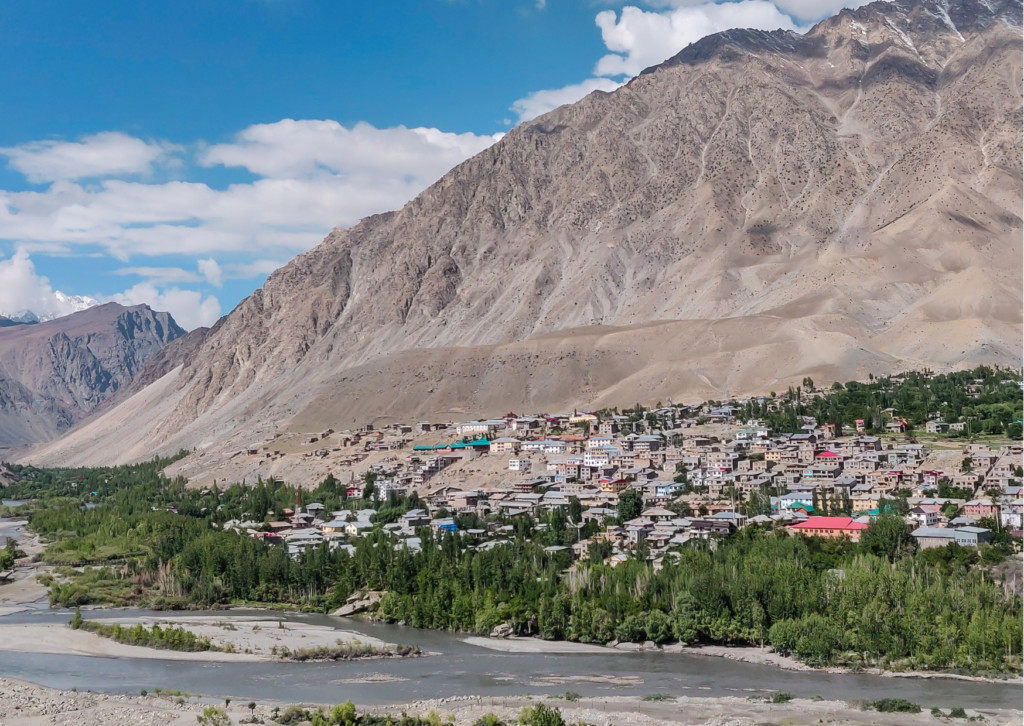- Sport & Abenteuer Reisen
- Yoga & Ayurveda Reisen
- Multi Aktiv Reisen
- Yoga Reisen
- Trekking Reisen
Overview
Ladakh, the “land of high passes”, enchants with its unique blend of Buddhist spirituality, majestic mountain landscapes and centuries-old traditions. The journey begins in Leh, a lively city where Tibetan culture, colorful markets and impressive monasteries come together. Here we immerse ourselves in the spiritual heritage of the region, explore historic palaces and let ourselves be enchanted by the warm hospitality of the Ladakhi people.
A special highlight is the four-day meditation retreat at the Mahabodhi Center, an oasis of silence and mindfulness. In the midst of the peaceful atmosphere, we immerse ourselves in meditation and yoga, accompanied by experienced teachers who introduce us to the wisdom of Buddhist teachings. This is a time of inner contemplation to bring body and mind into harmony and to experience the tranquillity of the Himalayan landscape in a deeper way.
A four-day tent trek leads us from Tsokar to Tsomoriri through the breathtaking expanses of the Changthang plateau. As we hike across vast high plateaus and along shimmering salt lakes, we are accompanied by the silence of nature. Encounters with the Changpa nomads, who live here with their herds of yaks and Pashmina goats, give us an insight into a fascinating way of life. Yoga sessions in the midst of this impressive backdrop reinforce our sense of connection with nature.
The crowning glory is the exploration of Pangong Lake and the Nubra Valley, two of Ladakh’s most spectacular landscapes. The turquoise-blue Pangong Lake, which stretches across the border to Tibet, fascinates with its surreal beauty. The Nubra Valley, on the other hand, with its golden sand dunes and encounters with two-humped camels, exudes an almost magical atmosphere. These last days of the trip allow us to experience the diversity of Ladakh once again – between rugged mountains, peaceful monasteries and the endless expanse of this unique high mountain world.
Program
Day 1: Thursday, 28.08.2025 – International flight via Delhi
Departure for India with a stopover in Delhi. Arrive on your own, we will assist you with the flight booking
Day 2: Friday, 29.08.2025 – Arrival in Leh & acclimatization
Morning arrival in Leh (3,500 m), transfer to the Jigmet guesthouse. The rest of the day is for acclimatization. Easy walks and relaxation.
Day 3: Saturday, 30.08.2025 – Exploring Leh with a guide
Visit to the Leh Palace, the Shanti Stupa and the lively bazaar. Insight into the Tibetan Buddhist culture.
Day 4: Sunday, 31.08.2025 – Monastery visits in the surrounding area
Visit to the impressive monasteries of Thiksey and Hemis, known for their architecture and spiritual atmosphere.
Day 5-8: Monday, 01.09.2025 – Thursday, 04.09.2025 – Meditation retreat at the Mahabodhi Center
Three days of deep spiritual practice with meditation, mindfulness and Buddhist teachings in a peaceful environment.
Day 9: Thursday, 04.09.2025 – Drive to Tsokar Lake
We cross the vast plateaus of the Changthang region to the high-altitude Tsokar salt lake. Overnight stay in a tent.
Day 10-13: Friday, 05.09.2025 – Monday, 08.09.2025 – Tsokar-Tsomoriri Yoga Trek
A four-day trek through the fascinating highland desert of Ladakh, with daily yoga sessions and spectacular panoramas. Arrival at the deep blue Tsomoriri Lake.
Day 14: Tuesday, 09.09.2025 – Transfer to Pangong Lake
Drive through breathtaking mountain landscapes to the famous Pangong Lake, which shimmers in magical shades of blue and turquoise.
Day 15: Wednesday, 10.09.2025 – Transfer to the Nubra Valley
Drive over the Chang La Pass into the Nubra Valley, known for its wide valleys and monasteries.
Day 16: Thursday, 11.09.2025 – Exploring the Nubra Valley & Turtuk
Visit to the remote village of Turtuk, near the Pakistani border. Insight into the Balti cultural tradition.
Day 17: Friday, 12.09.2025 – Return to Leh via the Khardung La
Cross the world’s highest drivable pass, the Khardung La (5,359 m).
Day 18: Saturday, 13.09.2025 – Last day in Leh
Free time for final explorations, shopping or visits to cafés and monasteries. Optional visit to the Alchi Monastery
Day 19: Sunday, 14.09.2025 – Return flight home
Transfer to Leh airport and journey home with many unforgettable impressions.
Included services
- All overnight stays: In Leh at Jigmet Guesthouse, during the meditation retreat at the guesthouse, during the trek in a tent (5 nights), at Pangong Lake at the guesthouse, hotel in Nubra Valley
- Breakfast in Leh, full board during the retreat and trek, half board during the tour to Pengong Lake and Nubra Valley
Four-day trek with:
- 5 nights in a tent (sleeping bag, mattress)
- Mountain Guide, Cook, Helper
- Last horses with horse guide
- Yoga teacher
three-day meditation retreat with:
- Accommodation
- Meditations, Yoga, Lessons, Discussions
International flightOvernight stay in Delhi at the end of the tripVisaUnmentioned food and beverages
Highlights
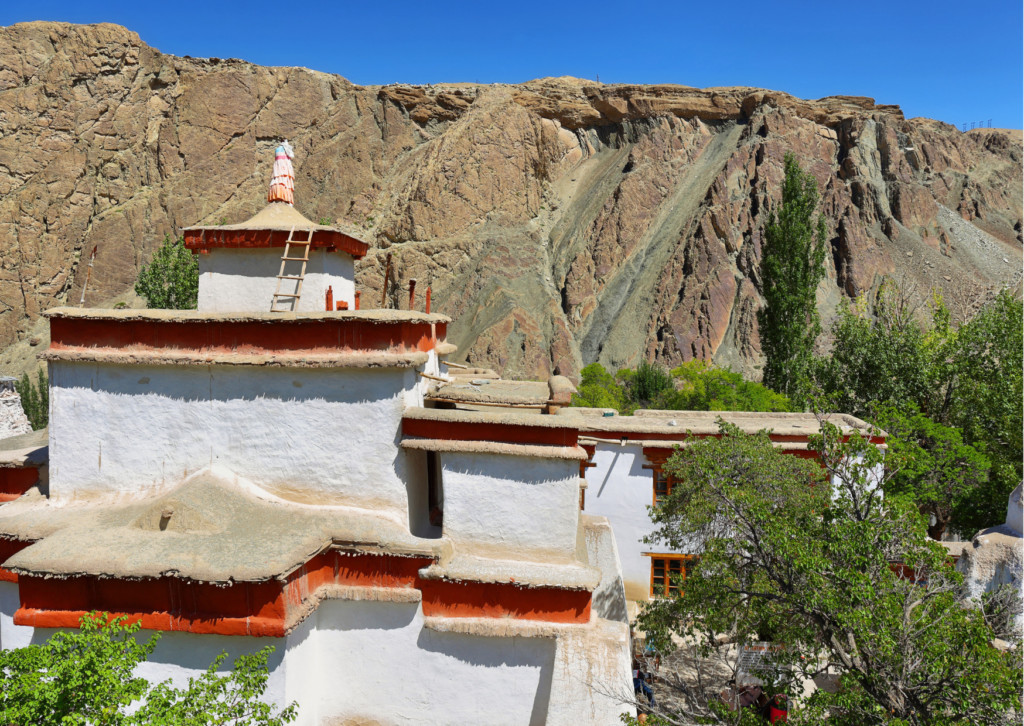
Ladakh 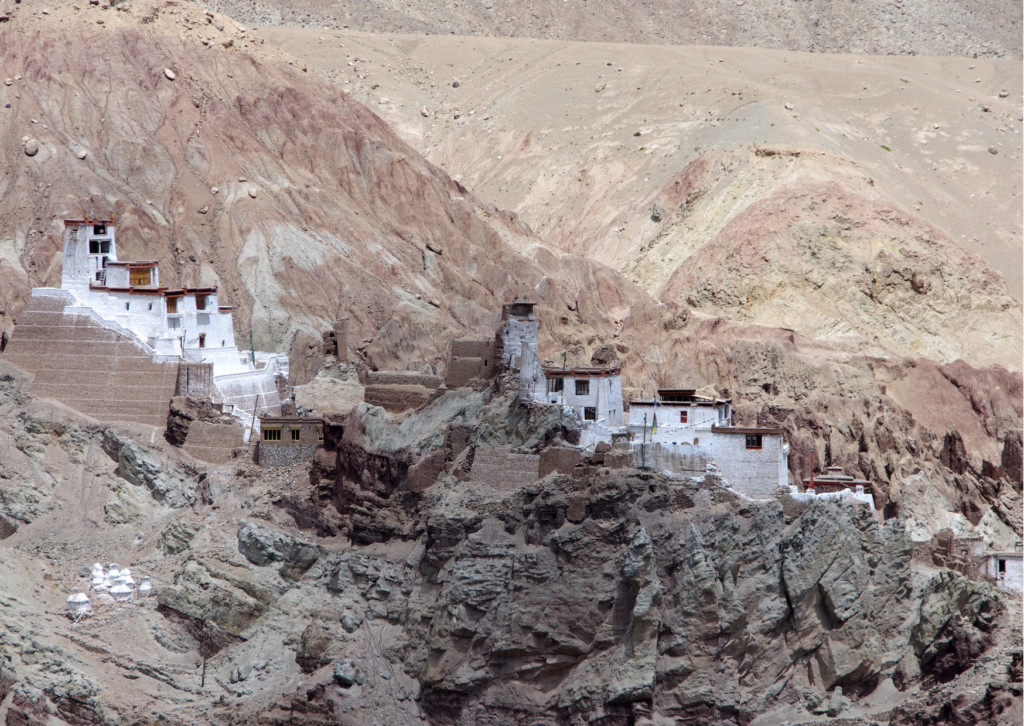
Alchi KLoster 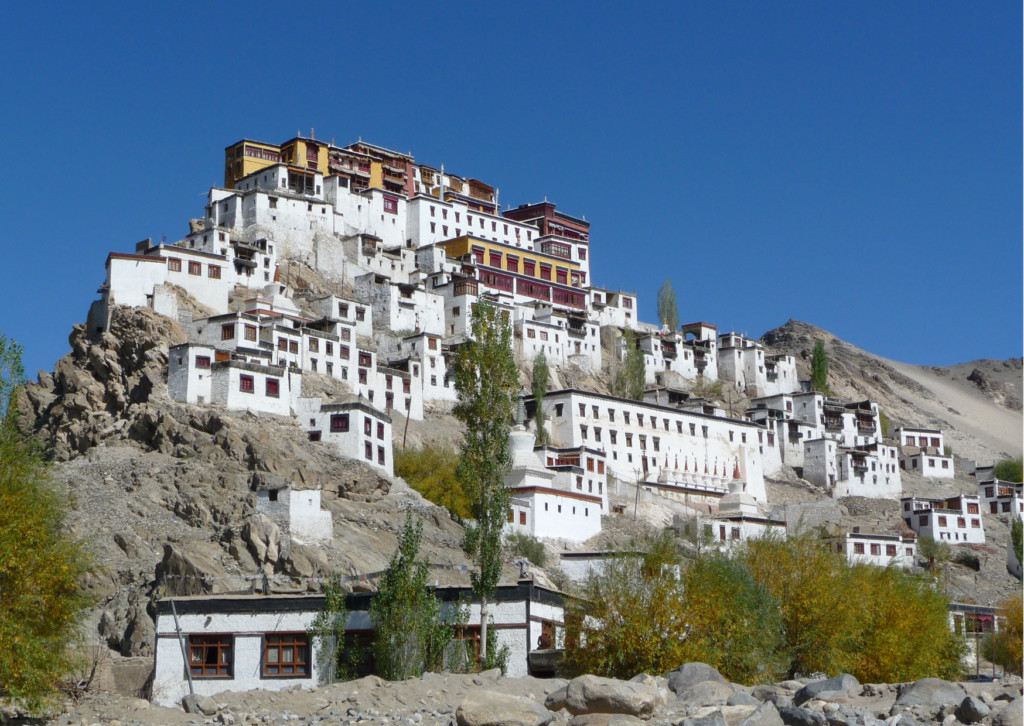
Thiksey Klsoter 
Ladakh 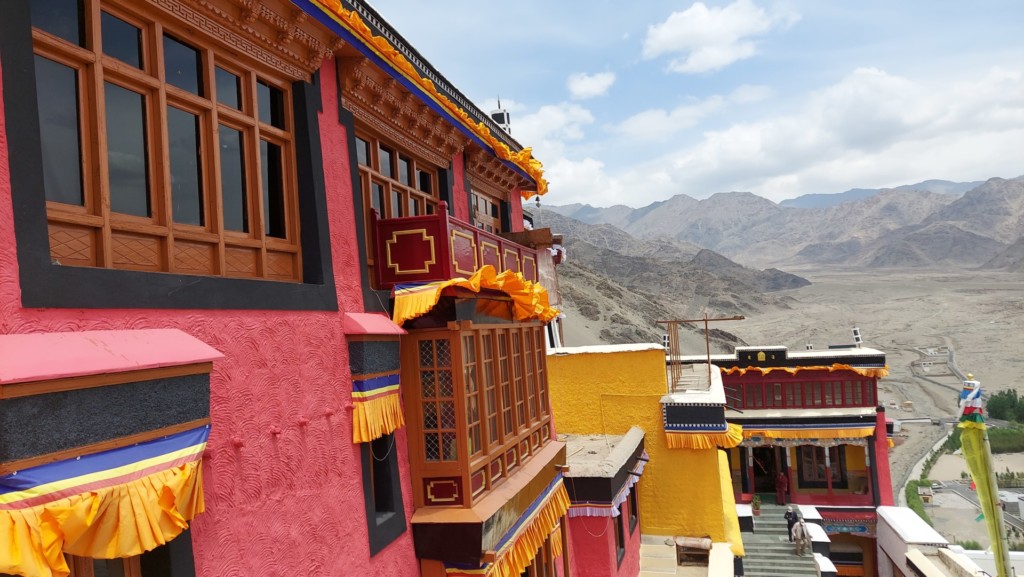
Thiksey Monastery 
Monks 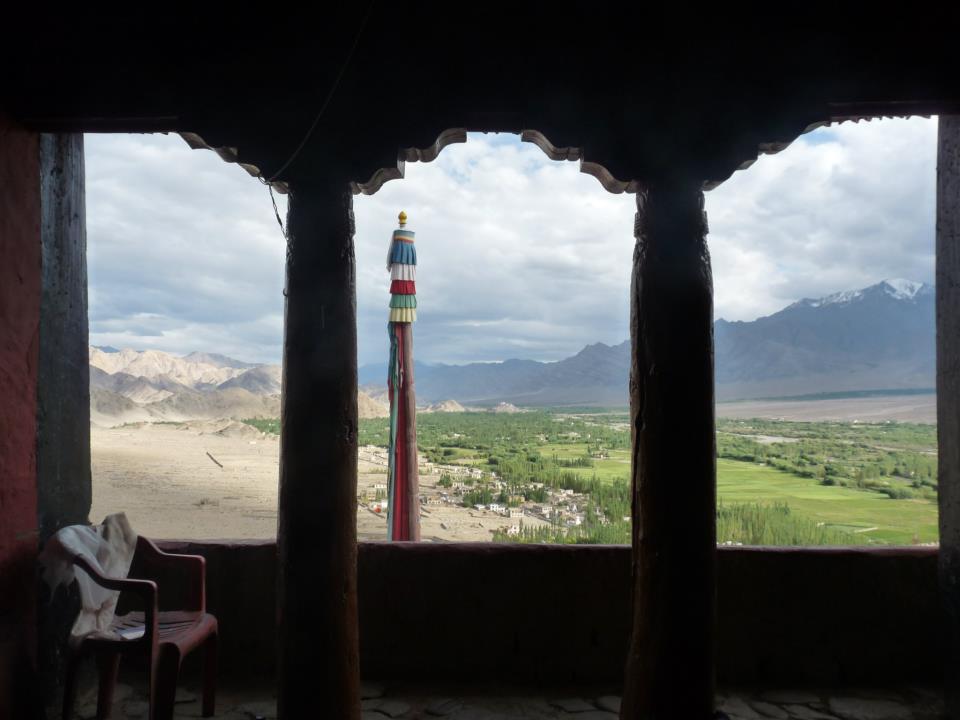
Ladakh 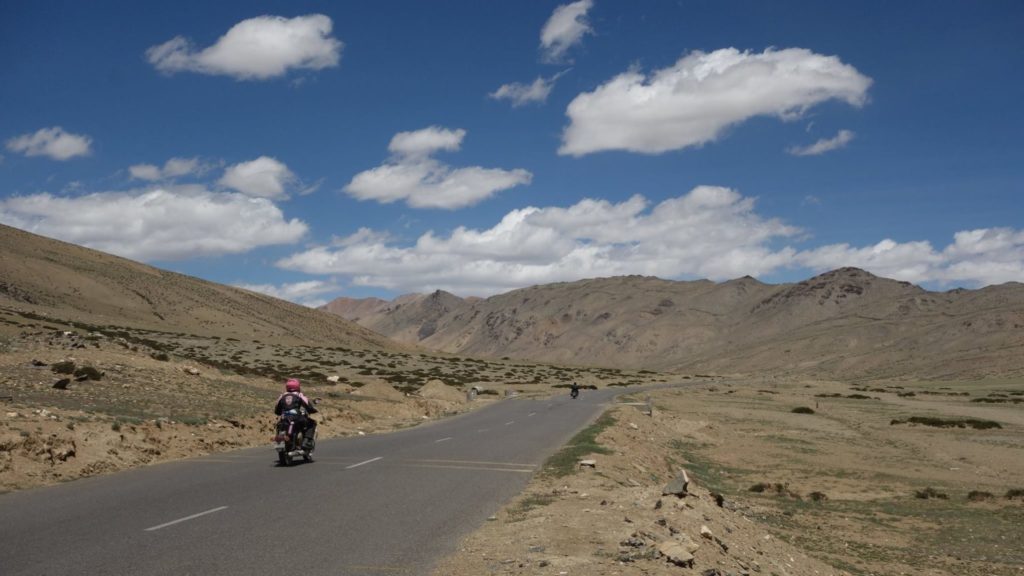
Ladakh 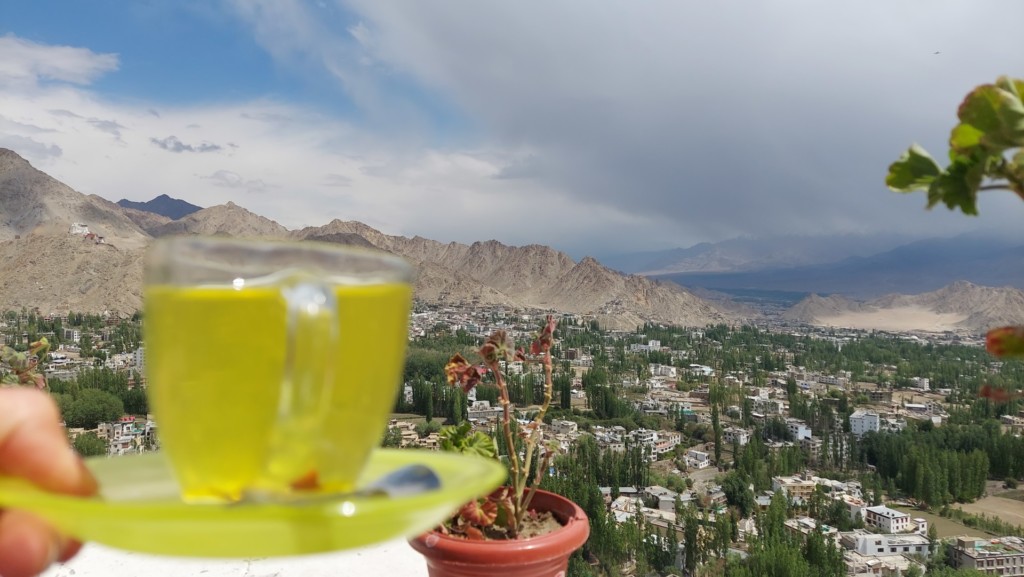
Leh 
Buddhist Retreat 
passport 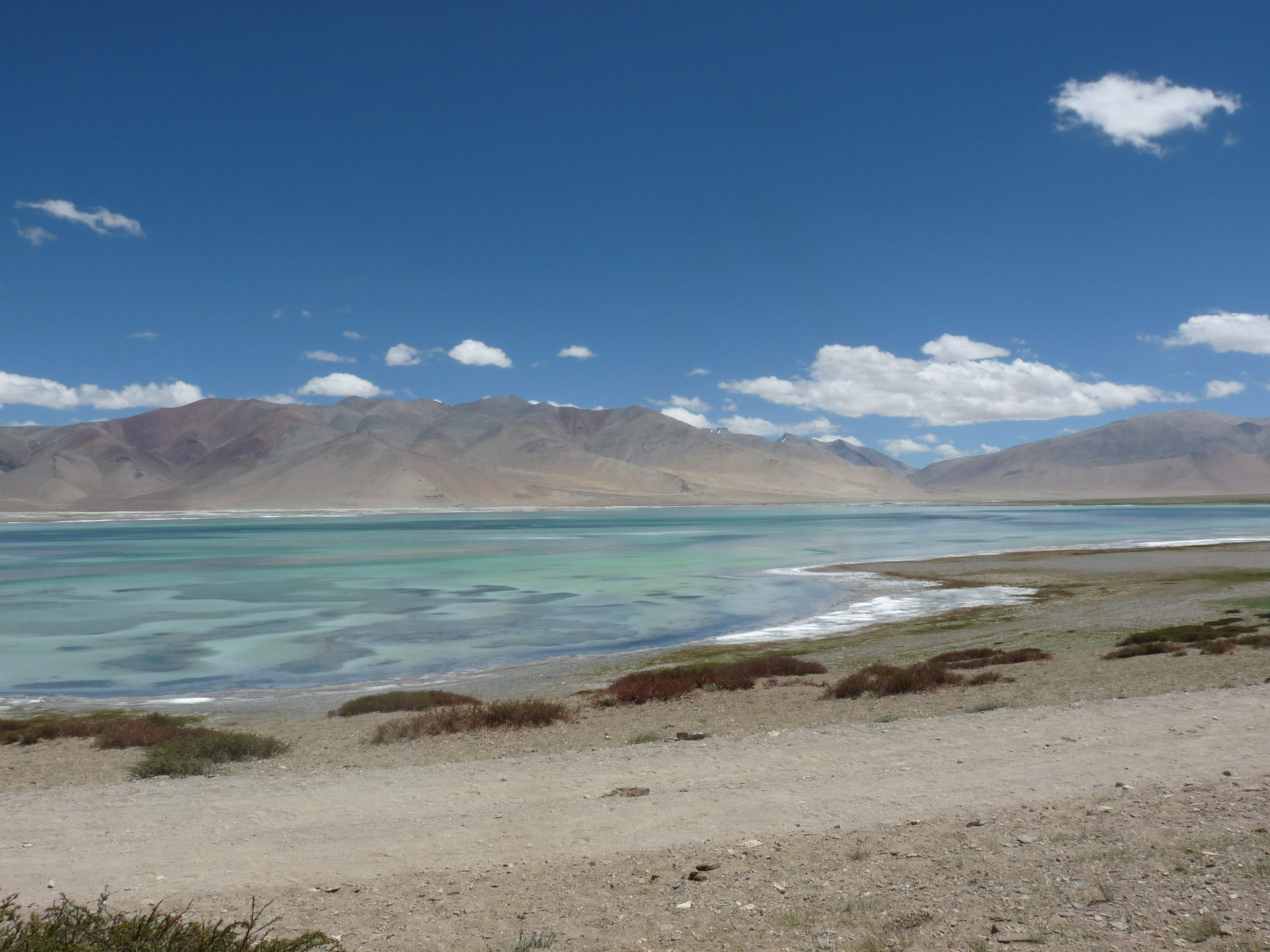
The Tso Kar Lake on the 12th day 
Trekking Camp 
A nomadic village 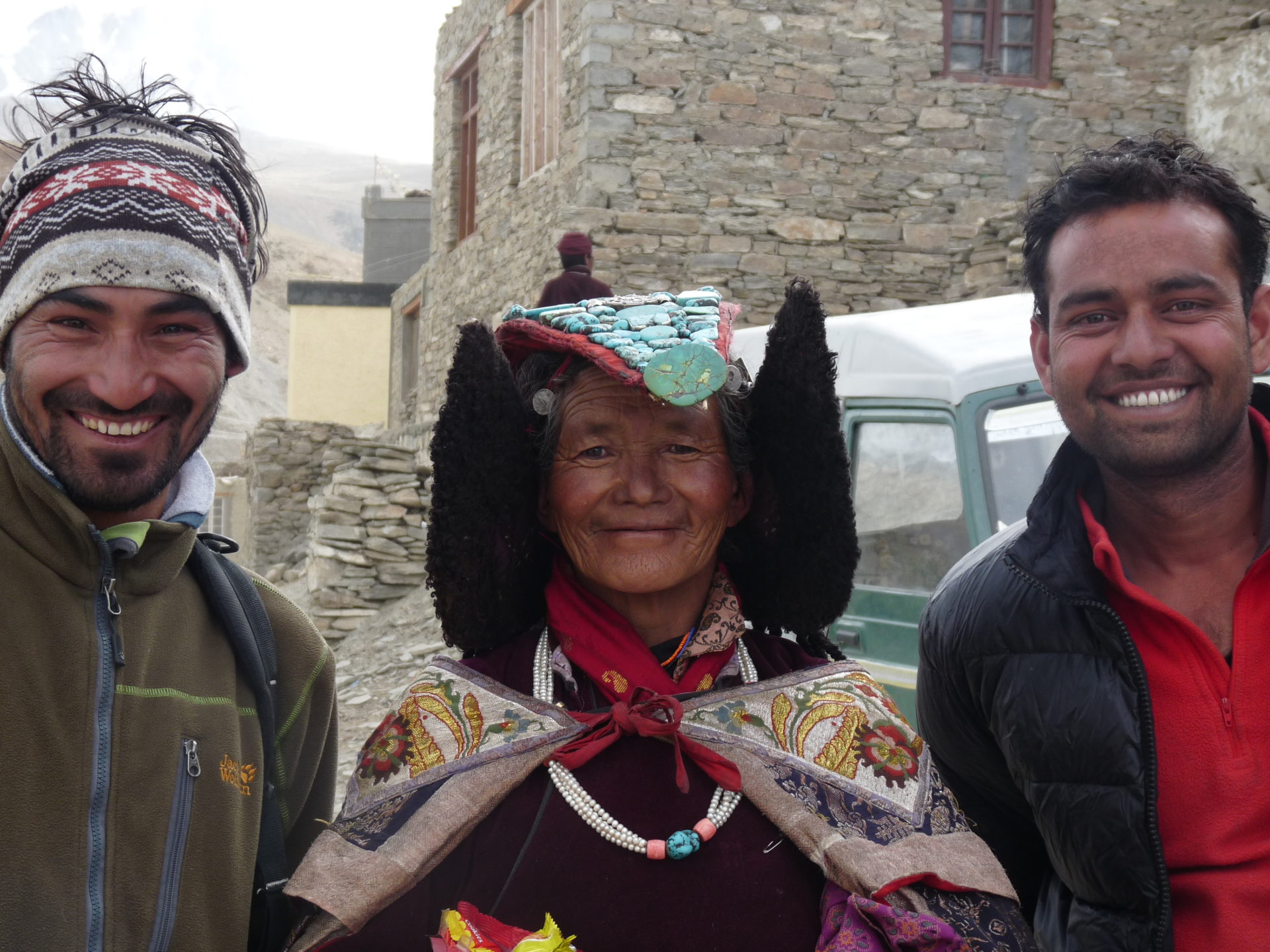
Traditional costume in Karzok 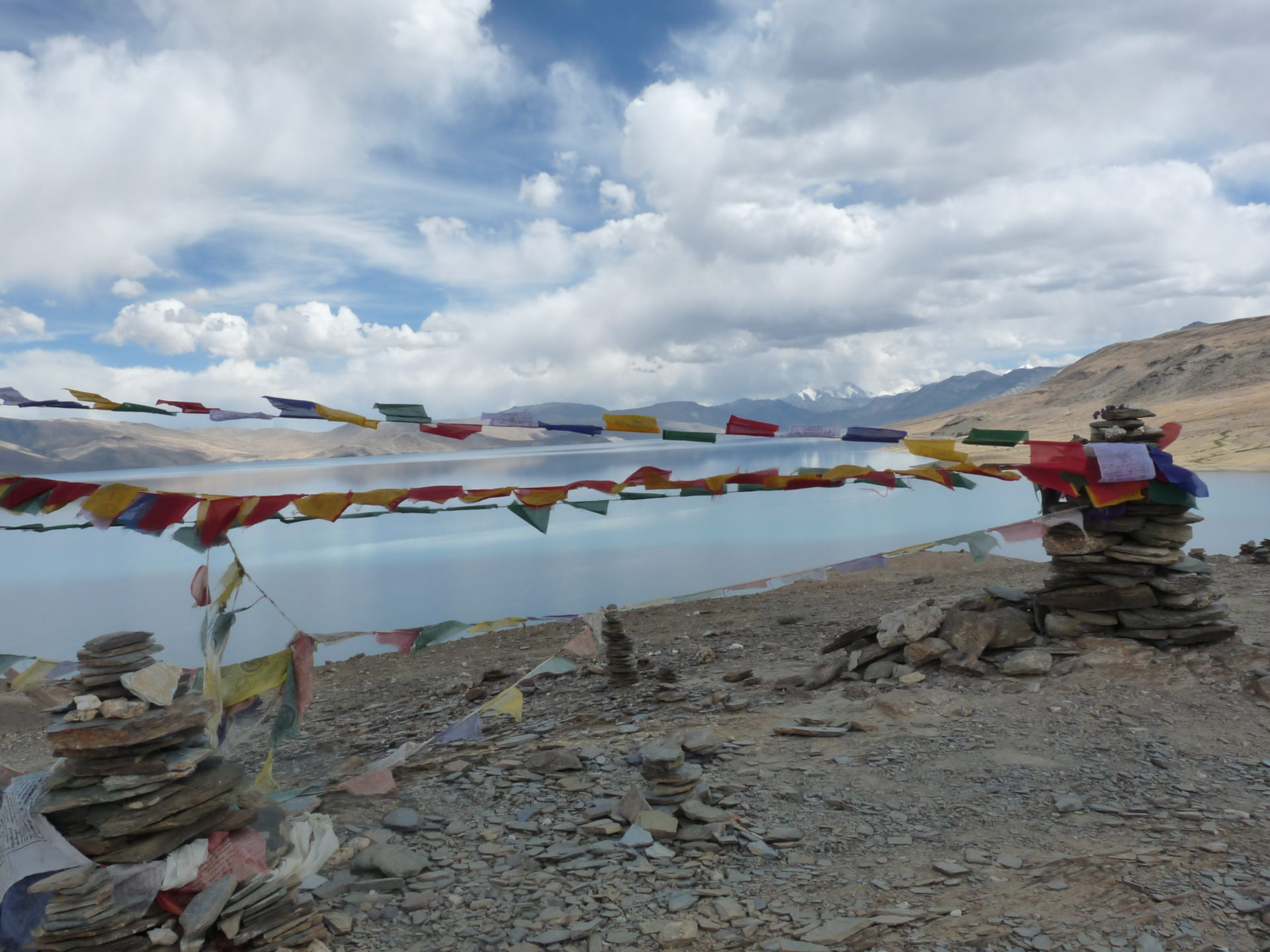
Lake Tsomoriri 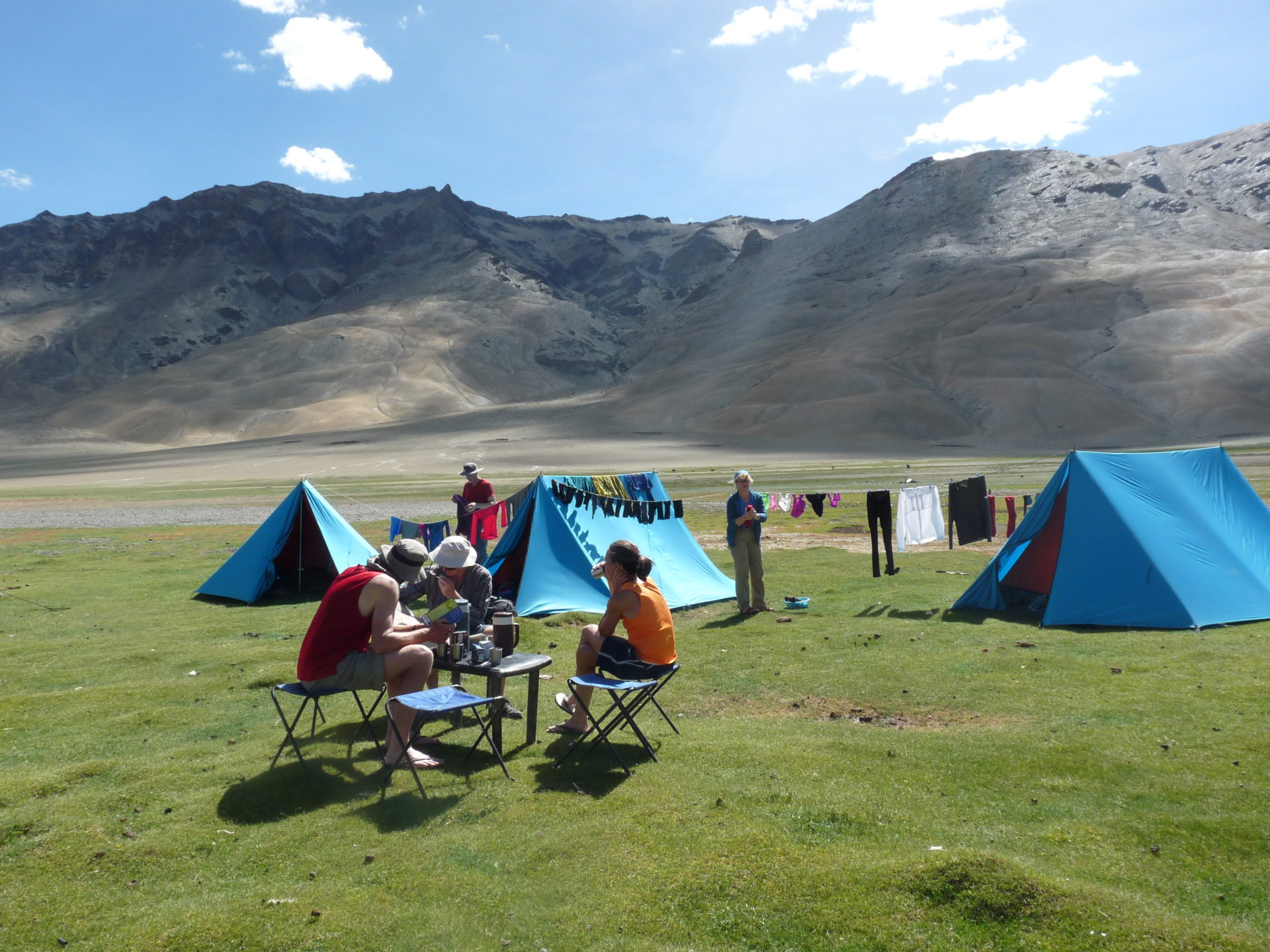
Camp at Lake Tsomoriri 
Marmot 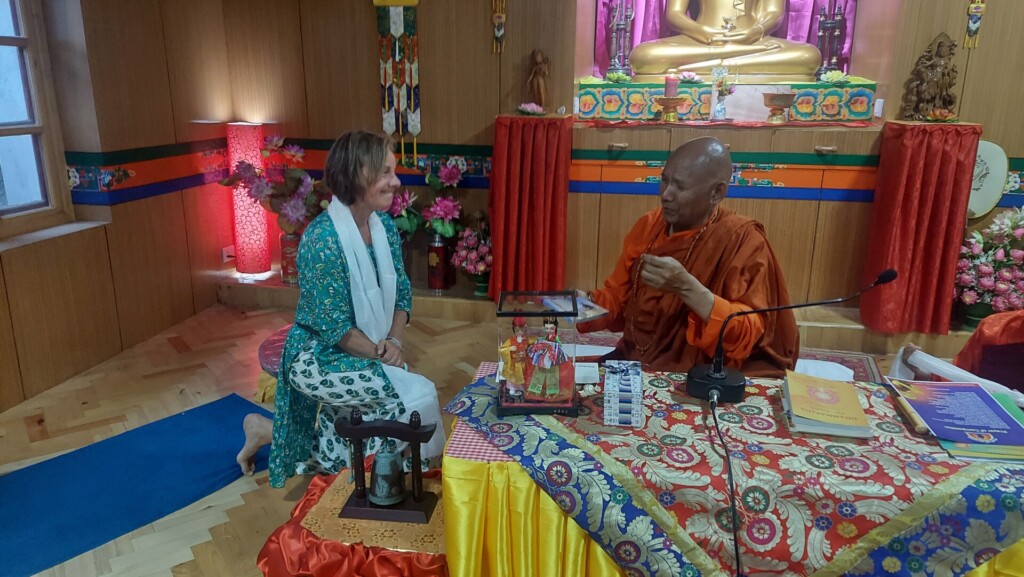
Mahabodhi Meditation Retreat 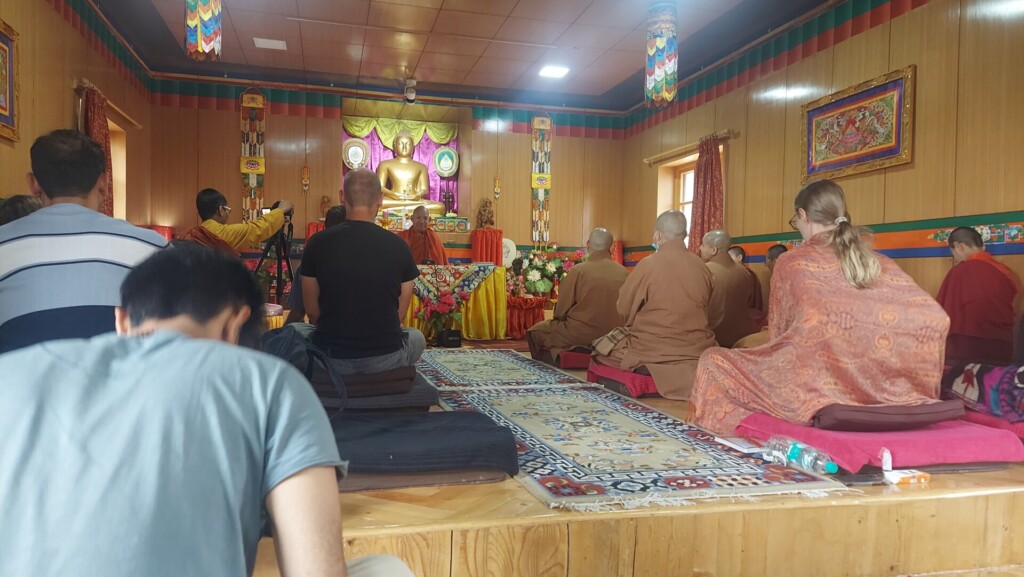
Meditation at the Mahabodhi Retreat 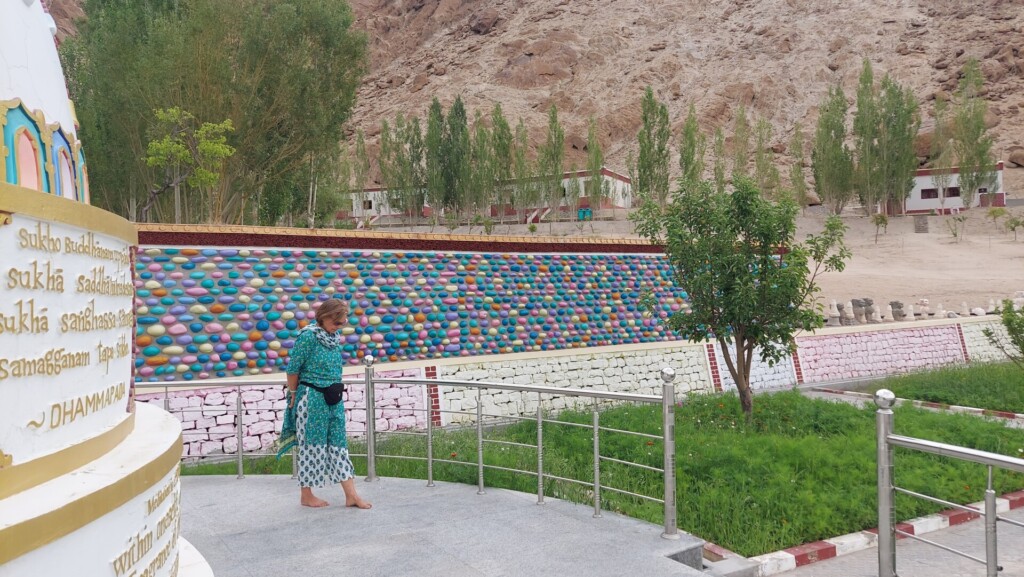
Go meditation at Mahabhodi Meditation Retreat 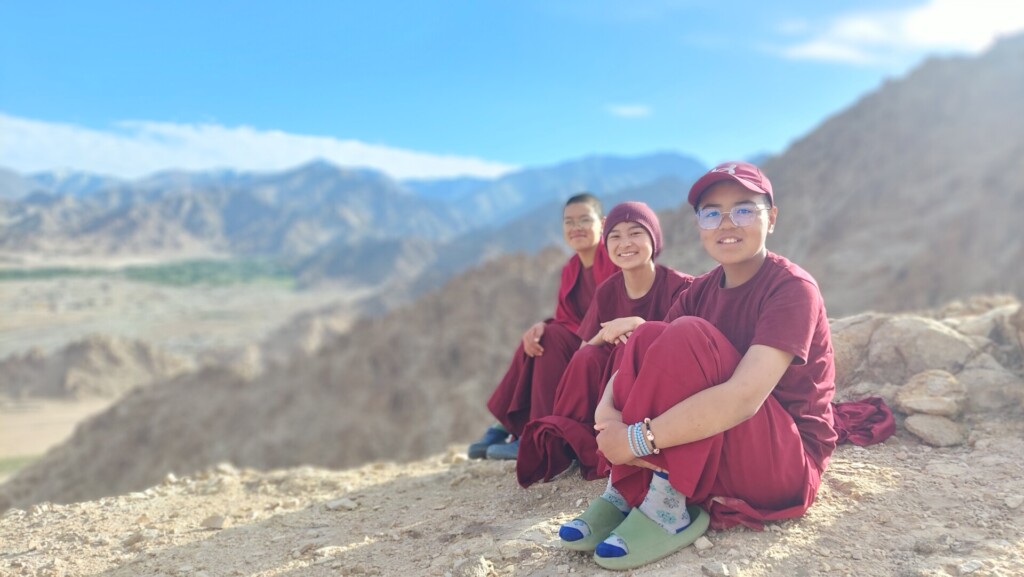
Mahabodhi nuns 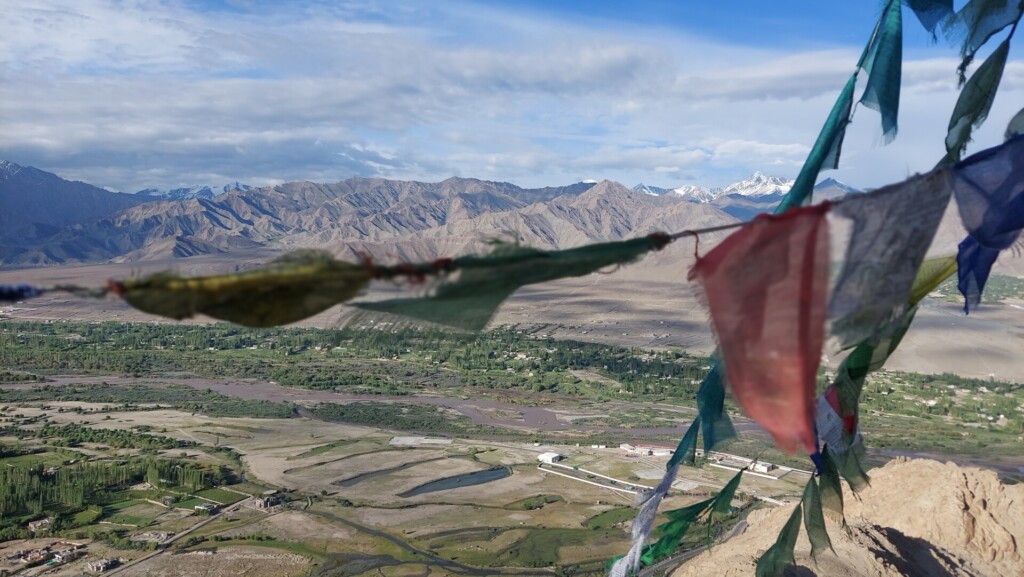
Excursion Mahabodhi Retreat 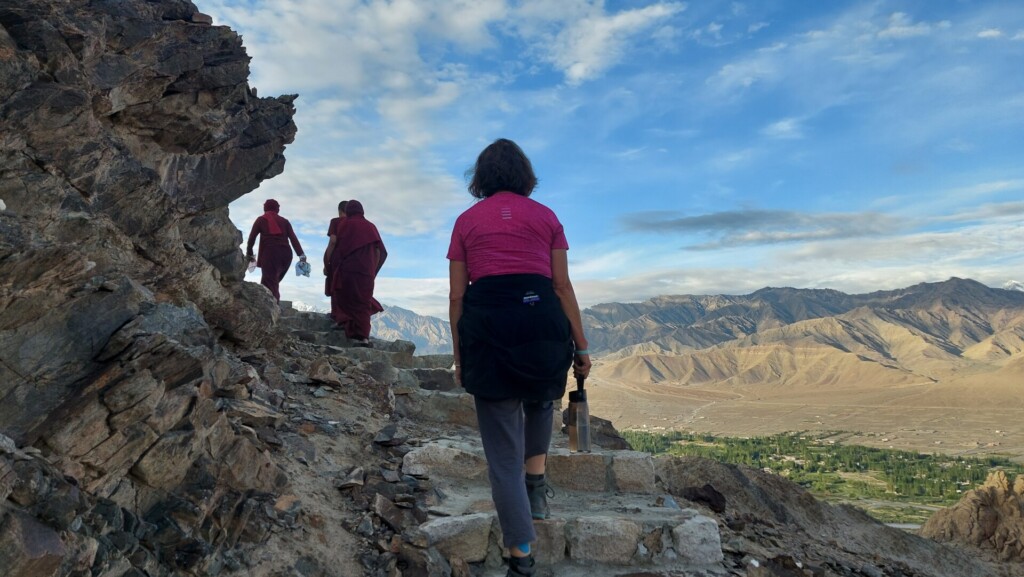
Mahabodhi morning hike 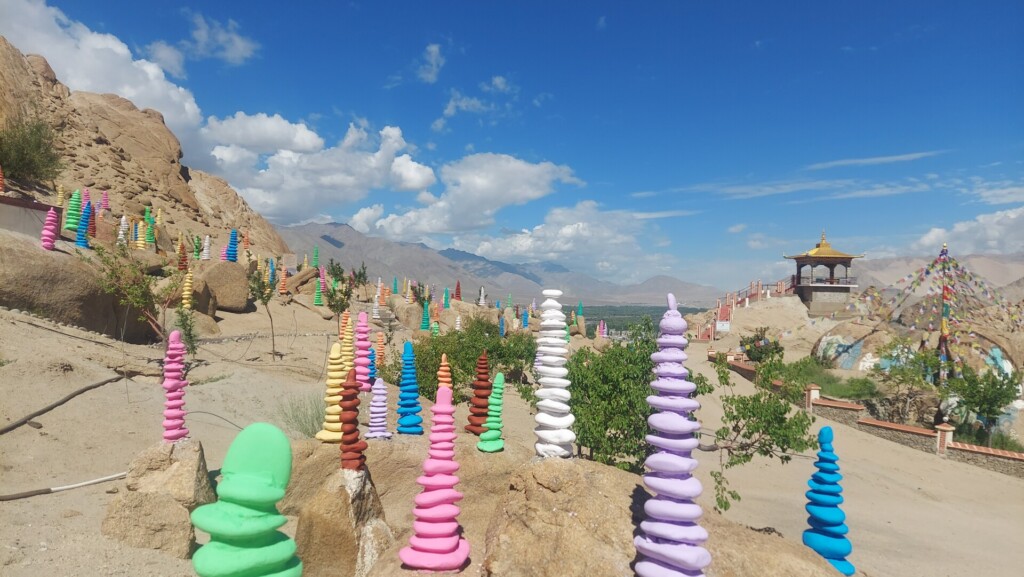
Mahabodhi Center 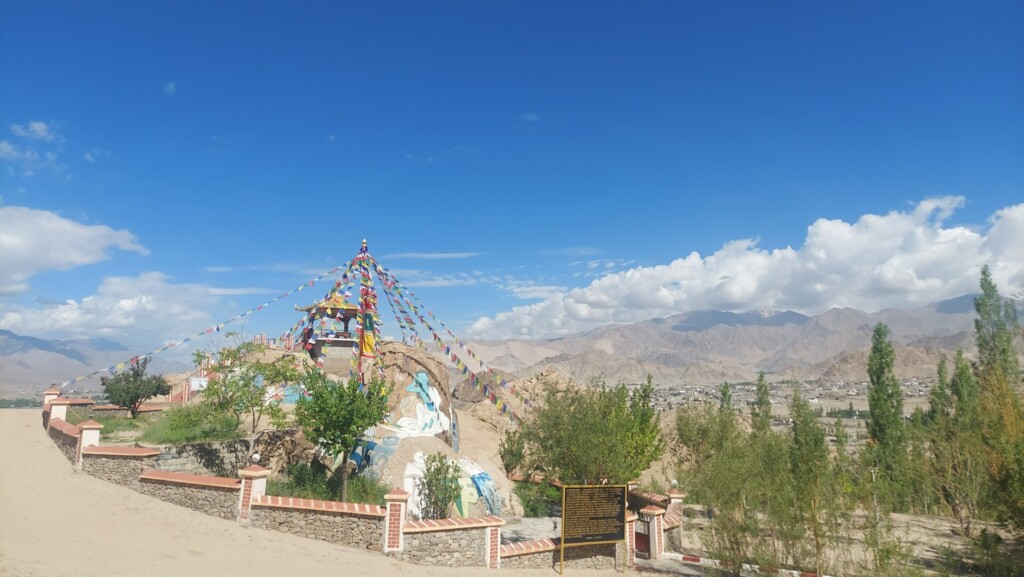
Mahabodhi Center 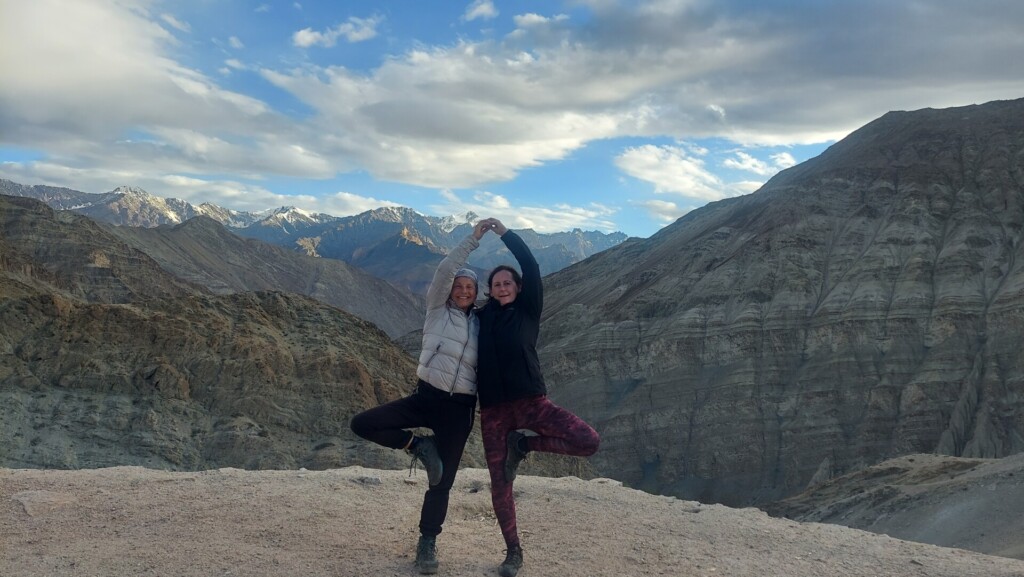
Yoga in Ladakh 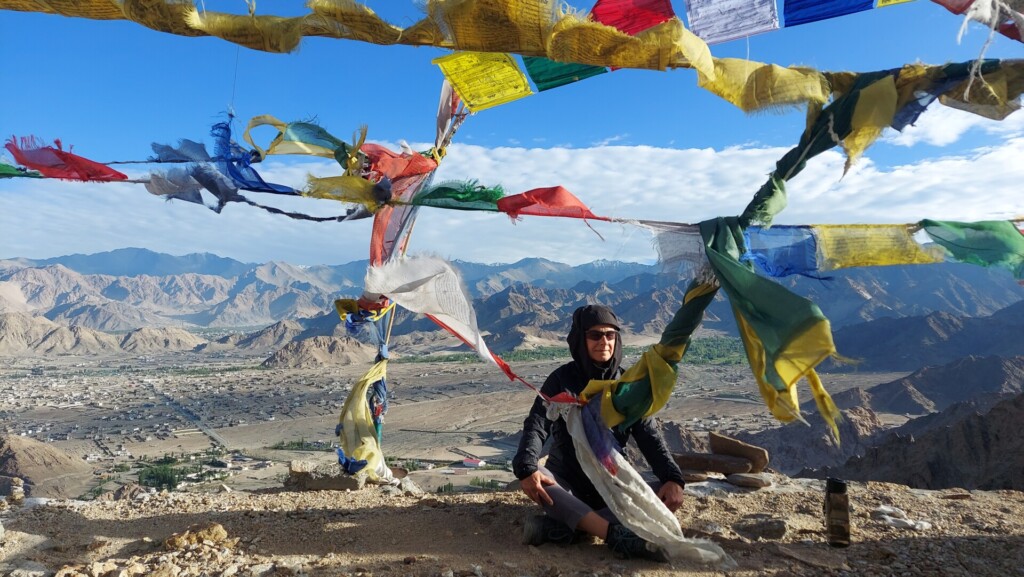
Tibetan flags Ladakh 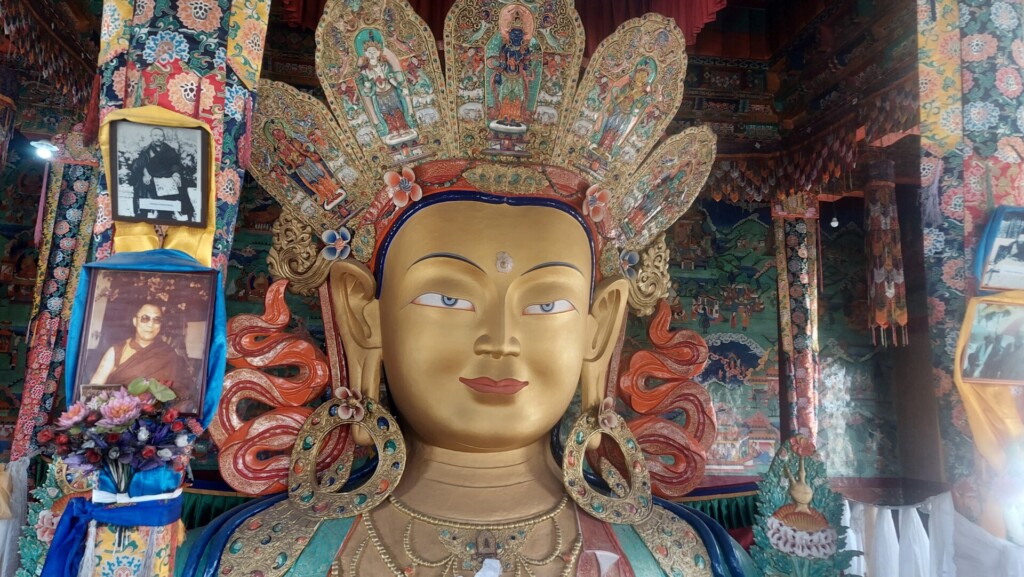
Buddha in Thikse Monastery 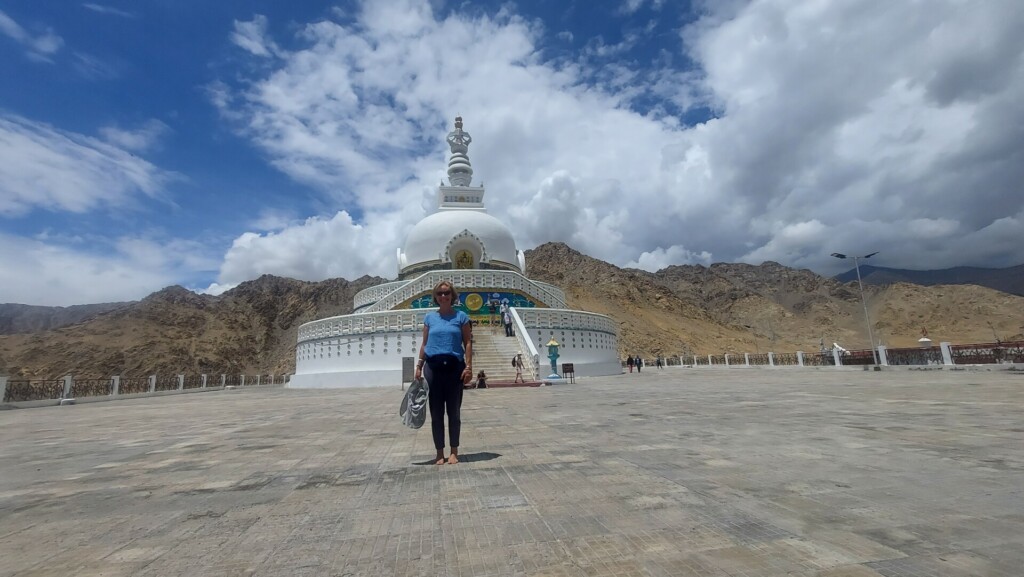
Shanti Stuoa 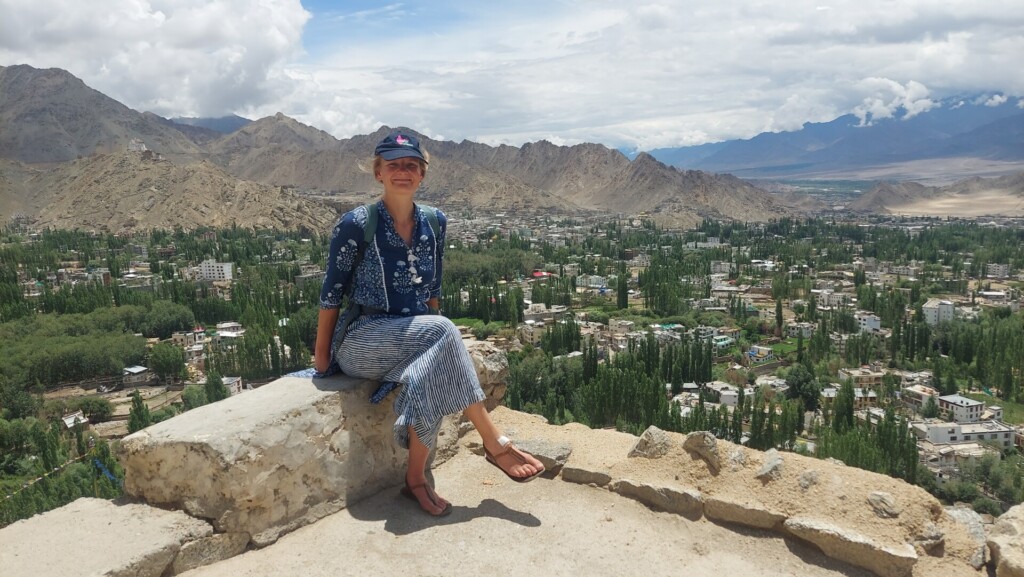
View of Leh 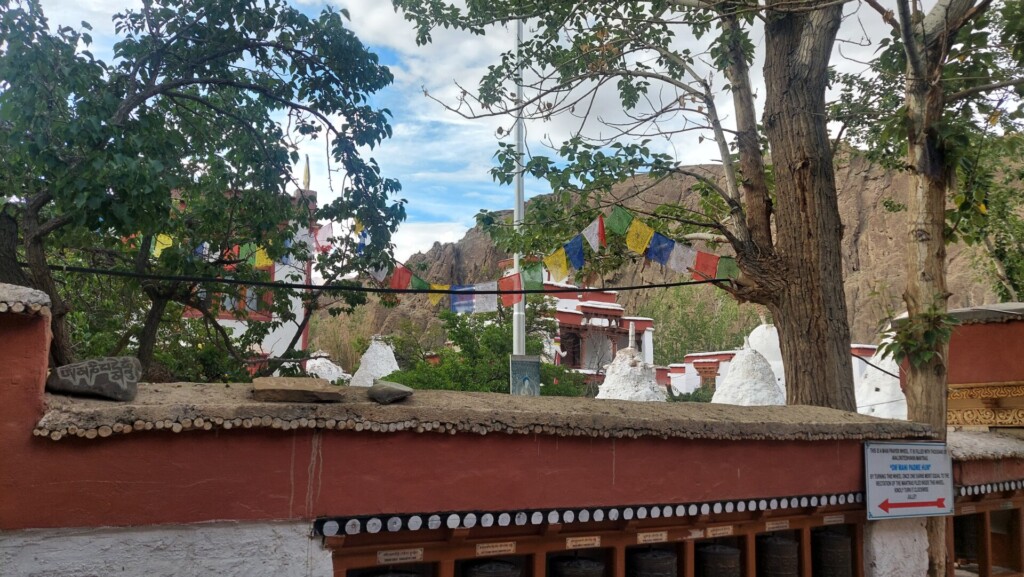
Alchi Monastery 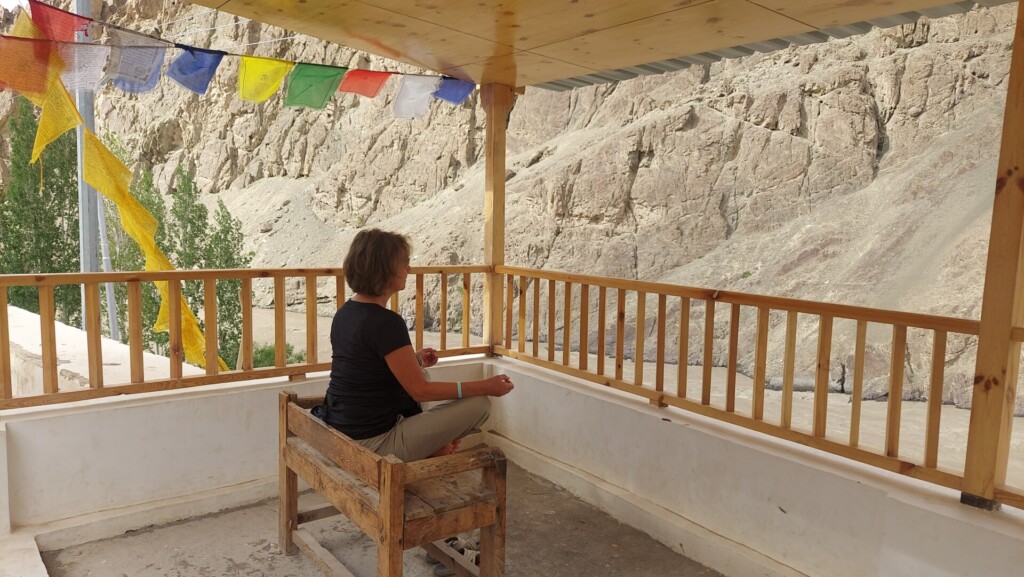
Meditation at the Mahabodhi Center 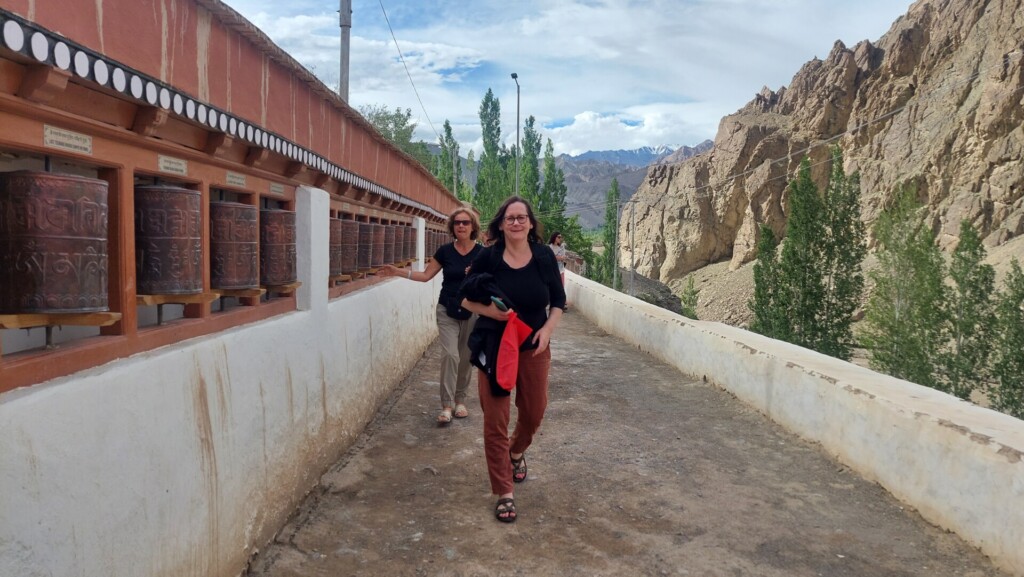
Alchi Monastery 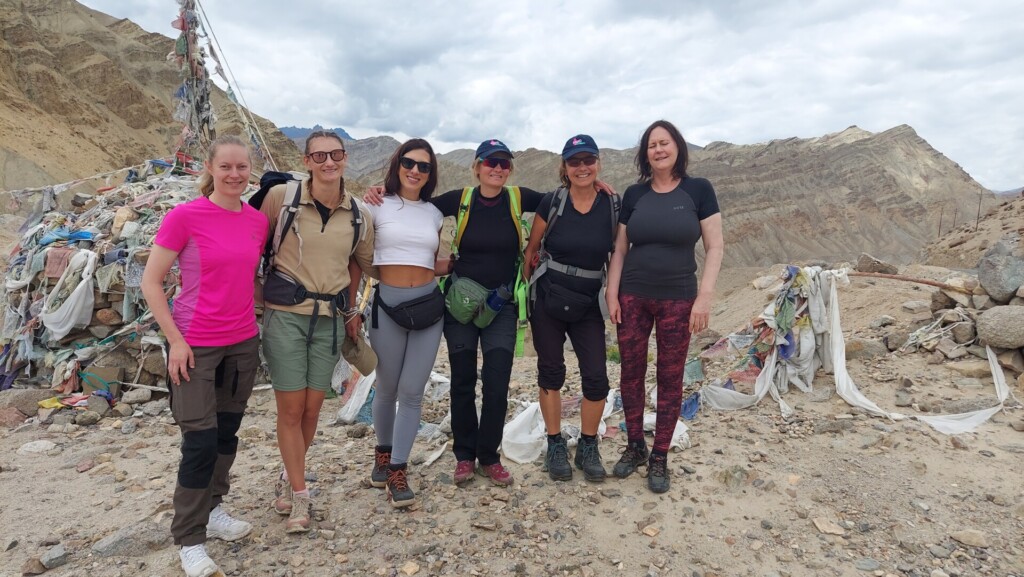
Hike Ladakh 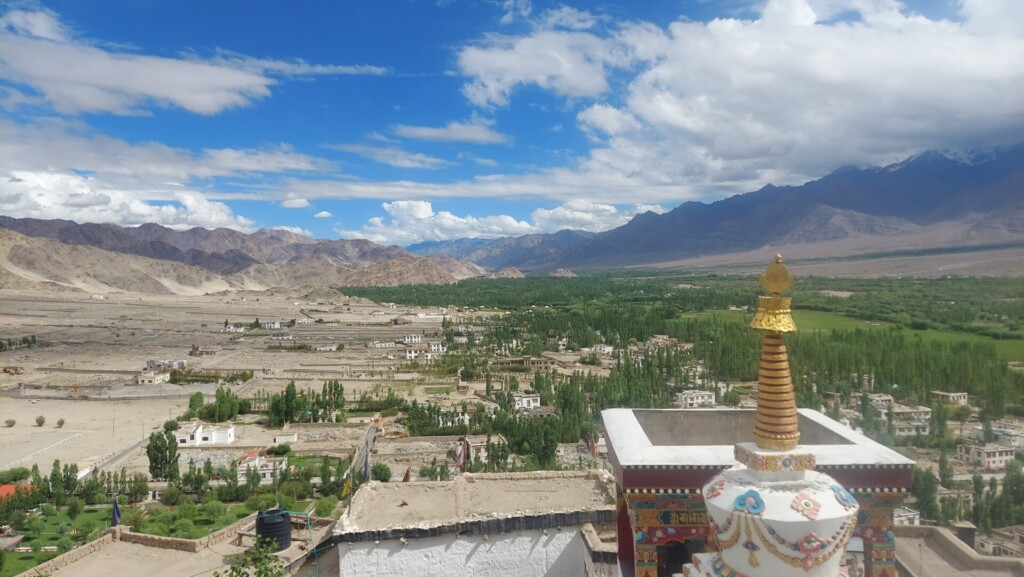
Ladakh
Prices and dates
Fixed date:
27.08.2026 – 13.09.2026
2500 € per person, from 6 participants 2400 €, 500 € single supplement
Travel info
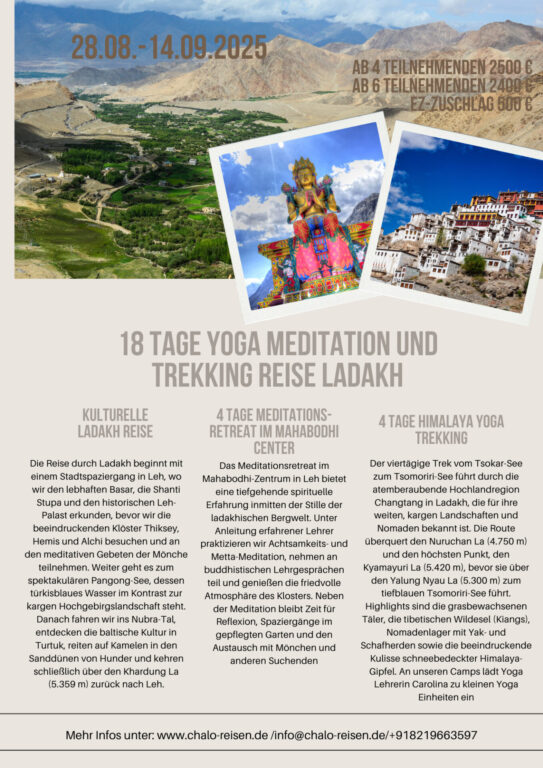

Yoga
The yoga classes are suitable for all levels and include a coherent blend of asana practice, pranayama, meditation and relaxation. The yoga sessions during the trek are taught by Carolina.
3 days Shangrila Meditation
The retreat will be conducted in English, but a German-speaking translator will be present.
More information about the retreat is available here as a PDF:
4 days Tsokar-Tsomoriri Trek
During the moderate trekking T
The region around Tsokar Lake and Tsomoriri Lake is one of the most remote and fascinating landscapes in Ladakh. Tsokar Lake, a high-altitude salt lake at around 4,500 meters, lies in the barren, almost surreal-looking Changthang plateau. Surrounded by snow-capped peaks and dry grass steppes, it is an important habitat for rare wild animals such as the Tibetan antelope (chiru) and black-necked cranes. The trek leads over spectacular passes such as the Yalung Nyau La (5,400 m), which offers breathtaking views of the untouched expanse of the Tibetan highlands.
On the way, we meet the Changpa nomads, who move through this rugged landscape with their herds of yaks and Pashmina goats. Their way of life is characterized by a deep connection to nature and centuries-old traditions. Finally, we reach Lake Tsomoriri, one of the most beautiful high mountain lakes in the world, whose deep blue water glistens amidst an almost unreal mountain backdrop. The lake is considered a sacred place and is revered by Buddhist pilgrims. The tranquillity and vastness of this region create a meditative atmosphere that brings body and mind into harmony.
Due to the altitude with passes over 5400 m, the trek is considered challenging. The gradients are moderate, the daily hikes are around 6 hours. Small yoga sessions in the morning and afternoon at beautiful camps provide the perfect complement to the trekking.
Information about trekking in the Indian Himalayas with Chalo! Travel
Mountain guide and trekking team
On all our treks we have at least one (for larger groups of 6 participants or two) trained local mountain guides. Our mountain guides have all completed at least the Indian mountaineering training, many of them have also taken part in the advanced courses.
You are familiar with the trekking routes and know the terrain excellently. Our mountain guides all speak English.
In addition, there is a local team consisting of a cook (if the group consists of only two participants, the mountain guide also takes over the tasks of the cook), helpers, horsemen with horses or Nepalese carriers, depending on the type of trek.
All our team members have been working with us for years, are very friendly and always strive to provide our guests with a great trekking experience. Their English is rather mediocre or non-existent, but this is not necessarily a hindrance to communicating with them.
Trekking routes
The trekking routes are designed for the skills of our guests and are all feasible for a person with a good fitness level, unless otherwise mentioned. The daily routes are between five and eight hours long (with breaks) and an average increase of around 500-800 metres of altitude is completed.
In between, rivers may have to be crossed or crossed. The paths are partly well developed, but sometimes also almost non-existent. On our trekking routes there are hardly any villages in between, so we will take enough food for the whole tour.
On our treks you can cross passes, snow or glaciers. On steep slopes, we have safety equipment with us.
Daily routine (Depending on the length and intensity of the trek, the times may vary)
7: 00 Get up with tea
7:30-8:30 Breakfast
7:00-9:30 a.m. Dismantling of the camp
8:00- 9:30 Start Trek
13:00 Lunch on the way
15:00-17:00 Arrival at the camp and camp construction
15:30-17:30 Snacks
19:00 Dinner
Altitude and altitude sickness
Altitude sickness is a very important topic that should not be underestimated, especially during our trekking tours in the Indian Himalayas. At altitudes above 3500 m, our body has to slowly get used to the low air pressure, which also causes less oxygen to enter our lungs. The first signs of altitude sickness are headaches, which are accompanied by dizziness, nausea, insomnia and loss of appetite. It becomes problematic when water accumulates in the lungs and brain and edema occurs. Then only the immediate descent to lower altitudes will help. To prepare for the highs on our treks, we will either spend a few nights at high altitudes before the trek or slowly ascend during the trek to acclimatize. If we notice that there are problems with our guests (each person is otherwise able to acclimatize, regardless of age, gender and fitness level), it may happen that either the entire tour group or the participant descends/returns with a team. In addition, it makes sense to take an emergency drug for altitude sickness. For this, it is best to consult the pharmacy or the travel doctor. For certain treks we will also have oxygen with us.
Luggage
Each trekking participant is responsible for his own clothes and personal belongings. Depending on the trek, we are either on the road with horses or carriers. If we have load horses, one bag per participant can be loaded onto the horse. In the case of treks with carriers, all personal luggage must be carried independently. Tents, sleeping bags, mattresses and food are carried by our porters.
For trekking tours with horses, a day backpack with space for the lunchbox, a water bottle and warm overcoat clothing should be taken with you. Here to the complete packing list for our trekking tours.
Packing list for trekking tours
- Sleeping bag (will be provided by us)
- large backpack or soft tote bag so that the pack animals can carry the luggage
- Small backpack for the day approx. 30-40 l with rain cover
- Flashlight / headlamp
- 2 refillable water bottles
- Walking sticks
- Passport and passport copy
- Camera with spare batteries and memory card
- Headgear as sun protection
- Good sunglasses
- Cap
- Scarf, buff
- gloves
- Windpants
- Trekking pants
- Functional underwear long
- Walking shoes
- Socks thick and thin
- Sneakers, sandals and / or slippers
- Windbreaker
- Warm jacket
- Fleece pullover / jacket
- Tshirts
- Sun cream, lip balm min. Protection 40
- Fat cream
- Water purification tablets
(boiled and filtered water is provided) - own medication for headaches, nausea, digestive problems, colds)
- Blister plasters and bandages
- own hygiene article
- Toilet paper
- Hand disinfection
Meals
During the trek there will be a vegetarian full catering. Water is either boiled or we have a water filter with us.
Breakfast (daily selection):
- Coffee/Tea
- Oatmeal porridge/muesli/cornflakes/Indian porridge
- Indian breakfast
- Sliced fruit/vegetables
Lunch (mostly lunchbox), sometimes warm in the camp
- Sandwiches/Indian (rice, chapati, vegetables)/potatoes
- Juices
- Fruit
Snacks
- Tea/coffee
- Cookies
- Indian snacks
Soup
Dinner
- Vegetable dish
- Lentil dish
- Rice
- Chapati
- Salad
- Dessert
Accommodation and camp
We have very comfortable and spacious two-man tents. Our mattresses are practical but simple if there are problems with sleeping on hard surfaces, please take your own mattress with you or order from us. Our sleeping bags are freshly washed and have a very good quality with comfort zone up to -5°C/extreme zone up to -20° C. It is recommended to bring personal indoor sleeping bags.
In addition, we have a spacious dining tent with tables and chairs, a kitchen tent for the team and a toilet tent. For treks up to 4 people, the kitchen tent can also act as a dining tent at the same time.
For trekking tours with porters, we will take our smaller, lighter tents with us and do without a toilet tent.
Weather
In the Himalayas, temperatures fluctuate widely. While it can get warm up to 25°C during the day and the sun is not only warming, but also very intense (sun protection is a must), it can also cool down significantly below the minus-grade at night, especially in the months end of September and October, as well as in June. There may also be weather changes with snow on the passes.
